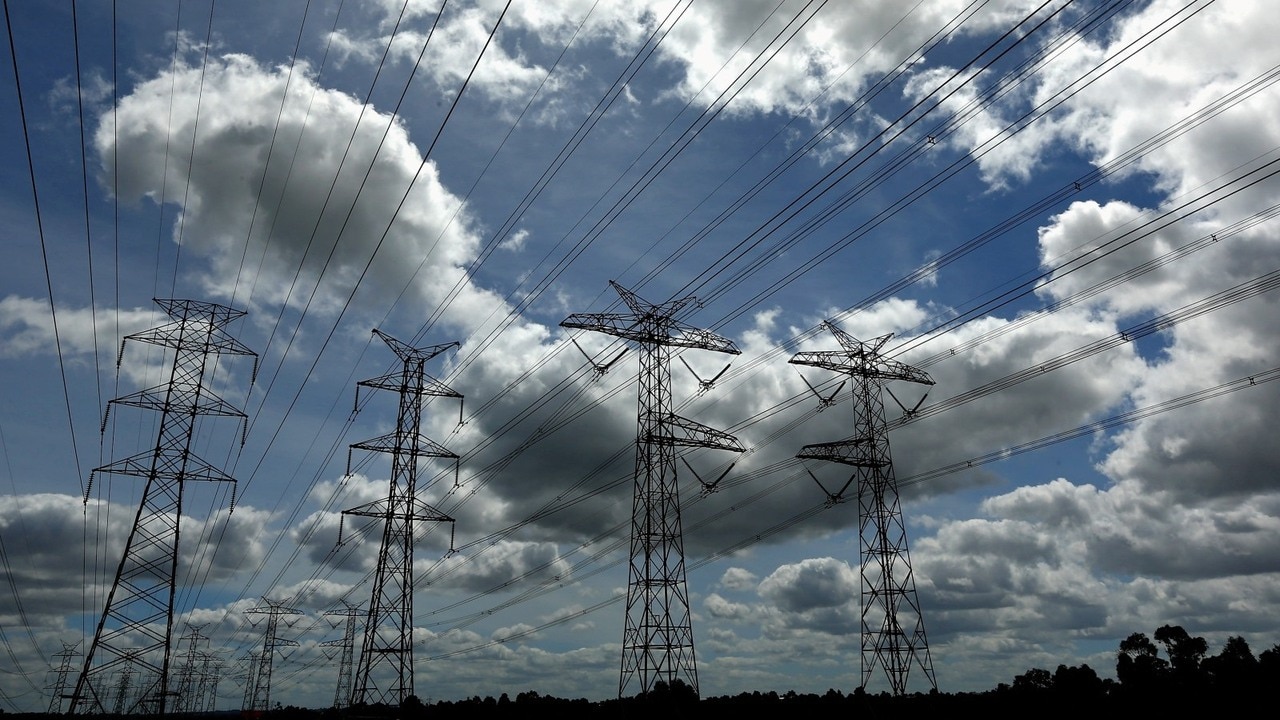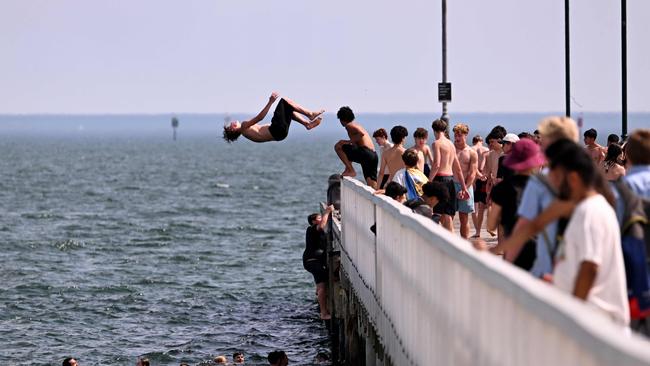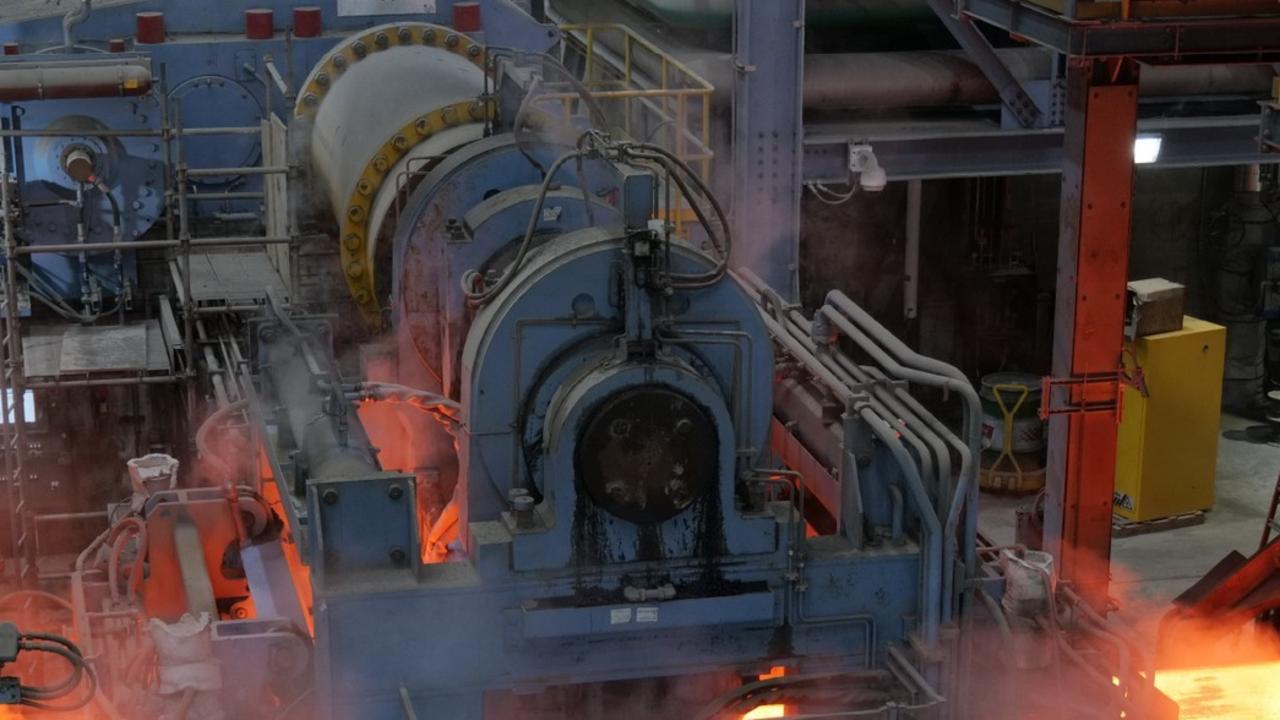Blackout risk to linger, gas shortfall worse than feared
A heatwave is stressing NSW’s energy grid, with authorities warning that stress will peak on Wednesday and Thursday.

The threat of a blackout across NSW will linger for much of the rest of the week, the country’s energy market operator has warned, as a widely watched market report said the state faced pressing gas shortages from 2026.
The Australian Energy Market Operator said it had secured extra sources of capacity to meet demand on Tuesday but warned supplies would be tight on Wednesday and Thursday as temperatures soared and a unit at Origin Energy’s Eraring coal power station – which generates about 25 per cent of NSW’s energy – remained offline.
Eraring was scheduled to be back up and running at full capacity on Wednesday but The Australian understands it will now not return to full capacity until the end of Friday.
Other coal power stations AGL’s Bayswater and Vales Point – owned by Delta Electricity – are both undergoing scheduled maintenance and not expected to return to full service until December. Bayswater has two units offline, one of which is planned maintenance but the other suffered an outage late last week.
AEMO chief executive Daniel Westerman said the agency was working hard to ensure grid stability. “Our focus is working with industry and the government to ensure sufficient generation is available to meet energy needs over the coming days,” he said.

AEMO has urged power generators to make as much capacity available as possible for both days, while it could execute some emergency powers to cancel any transmission works scheduled for both days. It also has the capacity to order some generators to dispatch – most likely batteries – or even pay some heavy users to trim demand.
Even then, NSW is expected to endure precariously tight energy capacity as temperatures spike and demand for cooling soars.
Should demand outstrip supply, there would be a high risk of blackouts. Even if AEMO can manage the market, tight supplies will drive wholesale electricity prices higher, which threatens to stoke the next annual tariff, the default market offer.
Australian households and businesses have endured two consecutive years of price increases of more than 20 per cent and any upward pressure would be unpopular.

Only a small minority of households and businesses are on the default market offer as retailers typically offer discounts to entice customers. Retailers insist if the default market offer is not allowed to rise in accordance with market conditions, fewer customers will be offered discounts.
While Australia’s east coast market grapples with the imminent threat, EnergyQuest on Tuesday said NSW would soon be materially short of gas.
Reinforcing a view of the AEMO, EnergyQuest said Australia’s east coast would experience shortages in 2026, and it estimated the shortfall would be substantial.
EnergyQuest said its analysis showed there was enough supply to meet only 70 per cent of NSW and ACT demand in the winters of 2026, 2027 and 2028.
Victoria has for decades been supplied by large offshore gas fields but these are running out. From winter 2028, demand forecasts require 32 per cent of Victoria’s gas supply from LNG imports, increasing to 42 per cent in 2029, and to 55 per cent in 2030, EnergyQuest said.
Rick Wilkinson, chief executive of EnergyQuest, said the findings were bleaker than official estimates.
“EnergyQuest’s new report finds that future gas supply issues are even more acute when the seasonal winter peaks of Victoria and NSW are considered. These two states will be reliant on LNG imports within a few years, or there simply won’t be enough gas supply to meet demand, and gas users will be unable to source gas at any price,” he said.
The expected reliance on importing gas into the east coast will be controversial. Critics insist it will increase costs to end users, though proponents such as Squadron Energy – owned by billionaire Andrew Forrest – which is poised to complete its own import facility, said the findings validated its project,
Squadron Energy chief executive Rob Wheals said gas shortfalls would be catastrophic for the region.
“Without LNG imports, gas shortages on the east coast will have severe impacts on Australian businesses and households and could leave 30 per cent of the market in NSW and the ACT without access to gas,” Mr Wheals said.
More Coverage
Originally published as Blackout risk to linger, gas shortfall worse than feared





